posted by Minjeong Shin and Lexing Xie
Our work received some pulicity in the “fall” conference season internationally and in Australia.
CIKM 2016 in Indianapolis
The 25th ACM International Conference on Conference on Information and Knowledge Management (CIKM ‘16) took place in Indianapolis 25-29 October. Swapnil and Lexing attended the conference, and presented three of our papers.
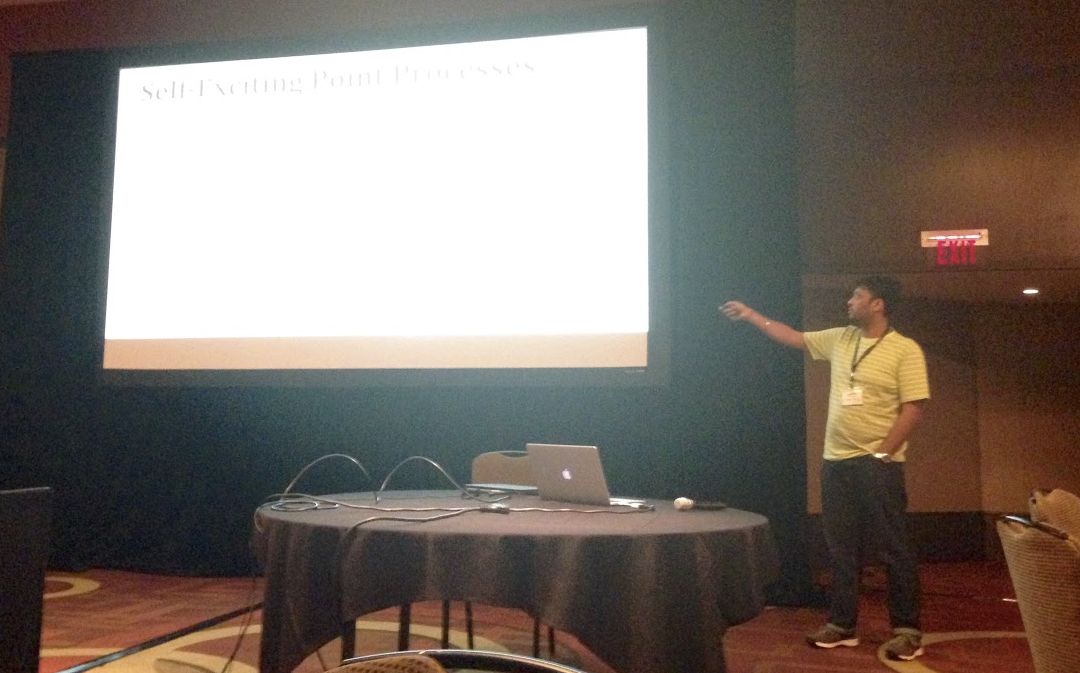
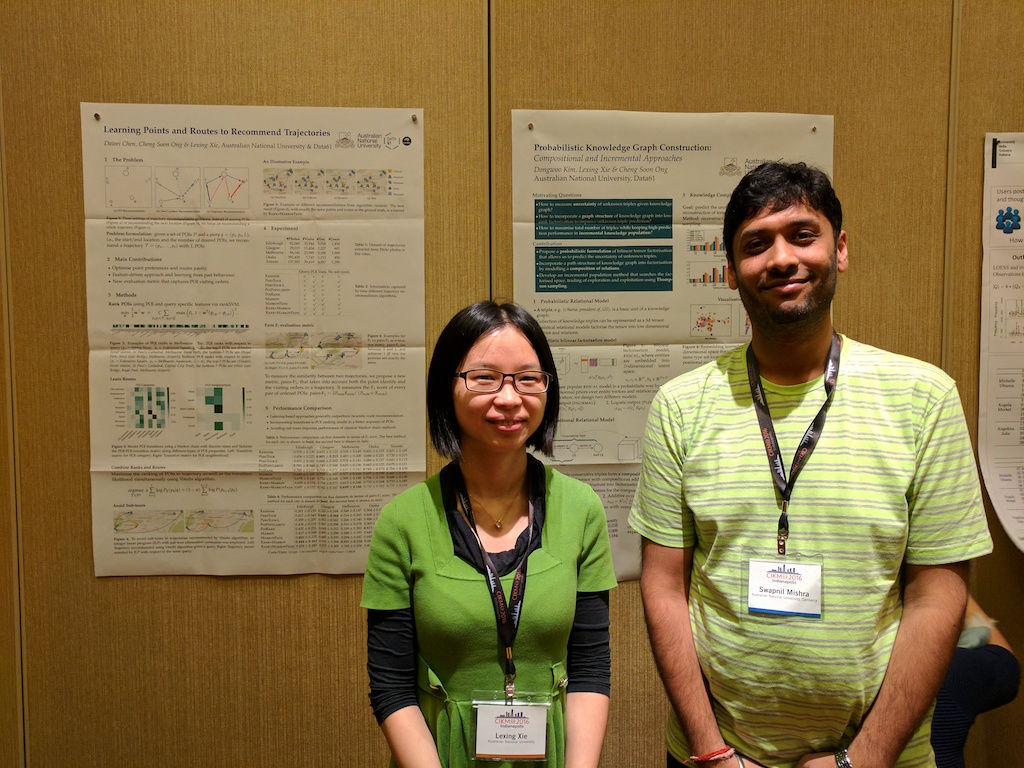
Left: Swapnil talks confidently about bridging two camps in the problem and method space in popularity prediction, with Feature Driven and Point Process Approaches.
Right: Swapnil and Lexing standing in front of two posters. The one on the left is on Learning Points and Routes to Recommend Trajectories, where we propose novel approaches to learn the objective fucntion for traveling salesman problems. The one on the right is on Probabilistic Knowledge Graph Construction, where we model the compositional structure and incremental learning of a knowlege tensor in a probabilistic framework.
We are representing co-authors Dawei, Dongwoo and Cheng, who could not make to this conference.
Data to Decision Annual Conference
Data to Decisions CRC Annual Conference was held at Hotel Realm in Canberra on the 15th of November. Minjeong, Lexing, Alex and Dongwoo presented a collection of our recent work in a session themed “Extracting Intelligence from Multimedia” to a diverse audience.
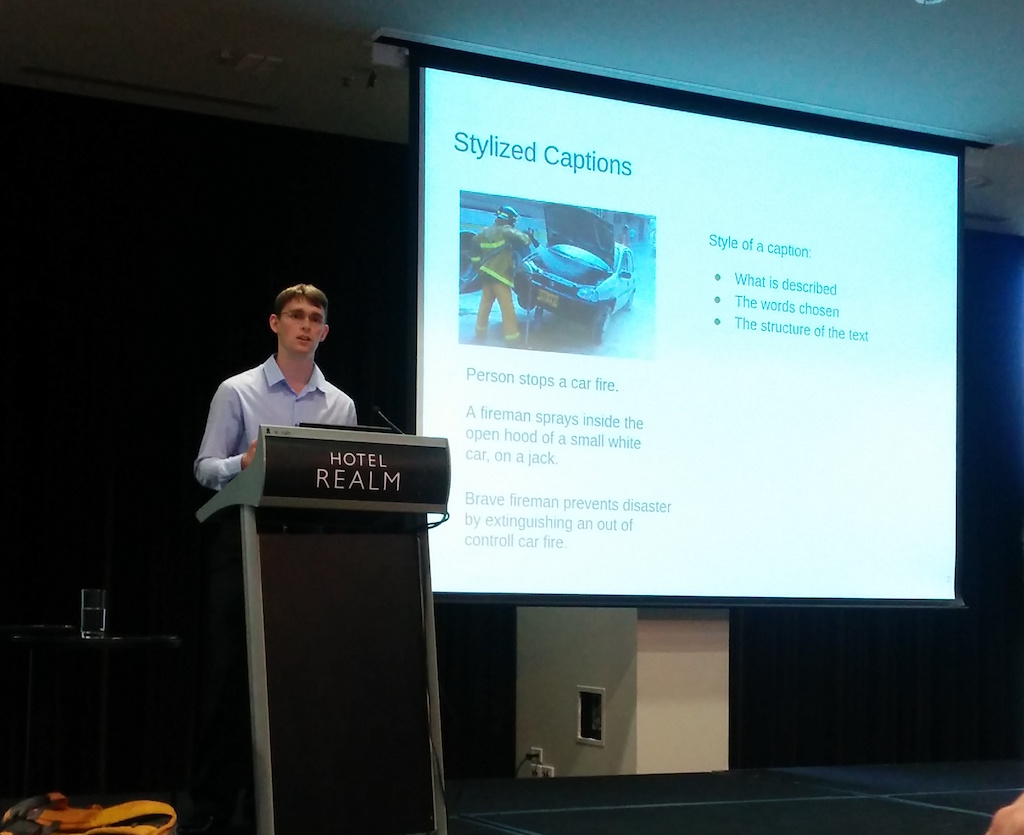
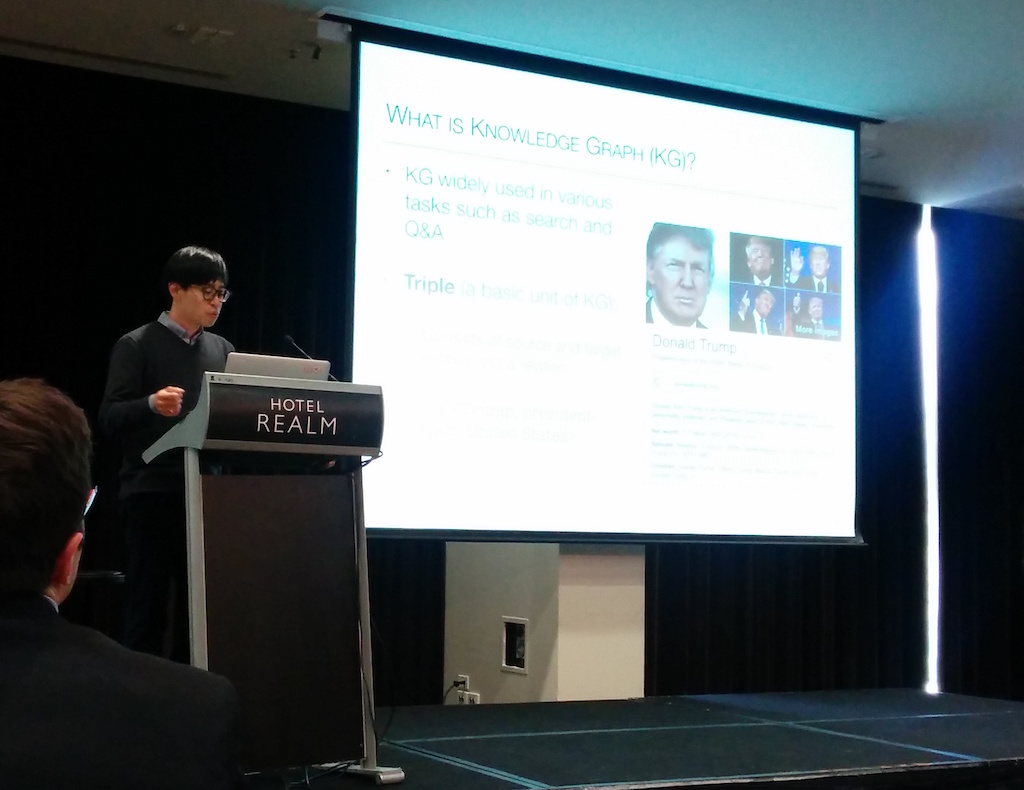
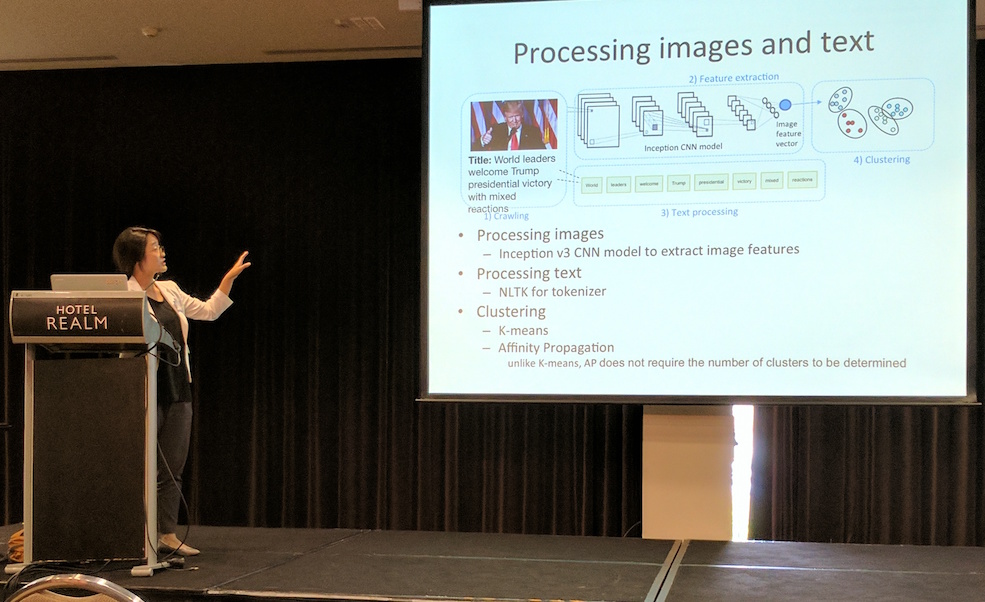
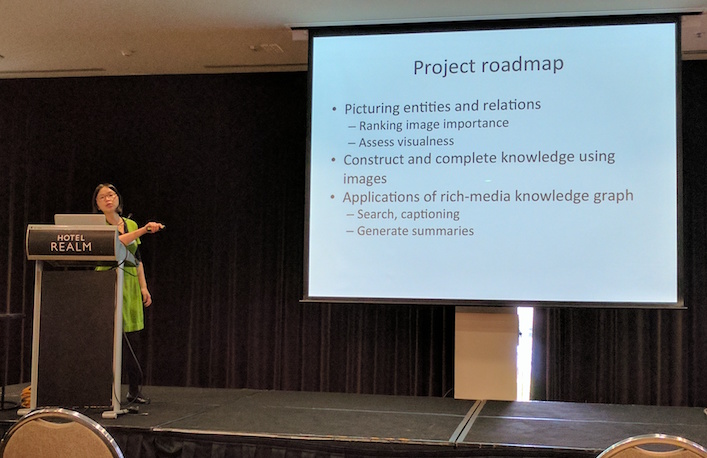
From left to right:
- Alex presents his thesis work on “Stylized Captions for Images, Names and Sentences” (link1, link2).
- Dongwoo gives his talk on Probabilistic Knowledge Graph Construction, and elaborated on the compositional and incremental approaches he recently proposed for completing knowledge tensors.
- Minjeong and Lexing gave a presentation on the overview of our Picturing Knowledge Project and a brief demo.
About the Picturing Knowledge Project
This project is part of the Apostle program hosted by the Data-to-Decisions CRC.
Knowledge graphs have become powerful sources for web search, but an equivalent source about things and their relations in pictures and videos does not exist yet. This project develops core techniques to learn image-centric knowledge graphs by connecting large collections of image/video and their descriptions to existing knowledge bases with encyclopedic, lexical, and commonsense knowledge. One compelling application for multimedia knowledge graphs is in the understanding of ongoing news and social events. We will design methods that construct high-quality knowledge graphs that are specifically relevant and adapted to each event, and propose new methods to automatically generate multimedia event summary documents.
Join us! We have open positions http://www.d2dcrc.com.au/position/picturing-knowledge/.